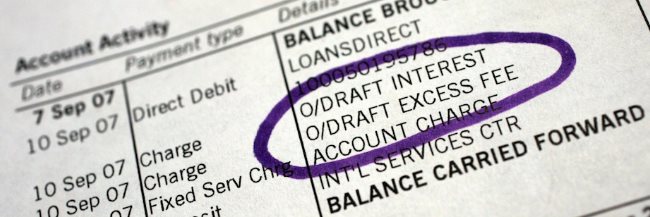What Is An Overdraft Fee
Overdraft fee? What is an overdraft fee? Why am I being charged so much by my bank? These are common reactions to being blindsided by an overdraft fee in the course of using a checking account to pay for your ordinary expenses.
No one enjoys getting slapped in the face with unexpected fees. Luckily, there are ways to avoid getting stuck with overdraft charges when you’re going through a financial bottleneck. The main way is with loans.
Editor’s note: If you like this article, feel free to join the conversation and leave your comments at the bottom!
Check out for more on personal finance tips.
What Is An Overdraft Fee?
What is an overdraft fee? It’s a fee your bank charges you when you run a transaction but have insufficient funds to cover it. Around $35 per overdraft is a common amount for this type of fee, but it varies from bank to bank. You can get hit with several such fees in a row before the bank decides to start simply declining attempted overdraft transactions from your account.
Obviously, timing is just as key to bankroll when it comes to avoiding NSF (non-sufficient funds) penalties. For example, you might have a deposit to your account that is in process but hasn’t yet posted and still get hit with a fee. Or, your next paycheck may auto-deposit in a few days, but in the meantime, bills are due that will auto-deduct from a checking account without sufficient funds to cover them all.
Paper checks can “bounce,” and electronic transactions can be declined. That may or may not be better for you under the circumstances than going into overdraft mode with your bank. It depends on the importance of the transaction. But the fact is, you don’t make that call – the bank does.
How Can I Avoid Paying Overdraft Fees?
In some cases, it may be more beneficial to you to take out a short-term, fast cash loan than to suffer from overdraft fees, late payment fees, bounced checks, and declined electronic transactions. A payday loan or super short-term personal loan could tide you over to the next paycheck or till you are able to get your finances back under control.
It’s possible to end up owing $100 or more to your bank after just one day of overdrafts. And then you pay interest on the outstanding balance until it’s paid off. Such interest rates can be quite high, and you can’t even use your checking account to pay more bills until the account is out of the red.
A fast cash loan lets you continue to use your bank account as usual. You won’t have to go through the trouble of juggling all of your auto-payments so they don’t bounce while your account is shut down by the bank. And you don’t build any credit by paying overdraft fees, but you hurt it. Repaying a loan on time will improve your credit score.
Finally, if you have time to get a new credit card before an overdraft hits, you could use it to temporarily divert expenses away from your checking account. As long as you make your credit card payments on time and meet the minimum payment threshold, you may pay less interest and fees than if you were dealing with your bank. Plus, you may be able to earn cashback rewards for your purchases.
How Can I Find My Best Loan Or Credit Card Offer Today?
Better Loan Blog provides you with the search tools you need to quickly locate your optimal loan or credit card offer. We understand that time is of the essence when you are struggling to avoid an overdraft fee and late fees on your bank account.
What is an overdraft fee? Not something you want to get stuck paying – that’s what! Better Loan Blog puts viable alternatives at your fingertips. Our search engines and helpful staff can rapidly find your new short-term loan or credit card!
